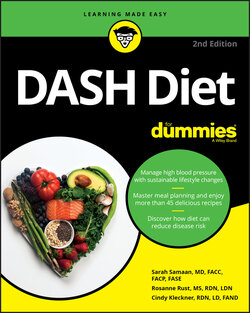Читать книгу DASH Diet For Dummies - Sarah Samaan - Страница 44
Why cholesterol matters
ОглавлениеThe two types of cholesterol circulating around in your blood that you need to concern yourself with are low-density lipoprotein (LDL) and high-density lipoprotein (HDL).
LDL is the “bad” cholesterol because it’s the one that clogs up arteries. You need a little bit of it to keep your cell membranes healthy, your brain working smoothly, and your hormones at healthy levels, but most people’s bodies make far more than they need. Most of the LDL swimming through your bloodstream is generated in your liver, a highly creative organ that can make cholesterol out of just about any sort of food. Dump in a load of saturated fat (coconut oil, animal fats) and it goes to town. Trans fat (found in partially hydrogenated oils, especially hard margarine and shortening, and many processed baked goods) revs up the liver’s cholesterol-creation system even more. Carrying around some extra body fat, especially the type that collects around your tummy, also boosts LDL production. Smoking does too.
HDL is the good stuff that works to protect your blood vessels. It works in opposition to LDL, pulling bad cholesterol out of the arteries and taking it back to the liver to be processed and eliminated. In general, the higher the HDL the better. Monounsaturated fats (from olive oil, avocados, and nuts), exercise, and alcohol in moderation raise HDL. Think “H is for happy; L is for lousy” if you have trouble remembering which cholesterol is which.
If your LDL level is high, then you may be more likely to suffer a heart attack or stroke, whereas high levels of HDL may help protect you. The optimal levels vary, depending on your other risk factors. These include hypertension, diabetes, smoking, and whether you’ve already started to develop cholesterol plaque in your arteries. For more about cholesterol and how to figure out your ideal numbers, check out Chapter 7.
